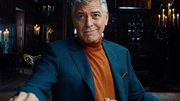Article
Top CEOs share secrets at Fast Casual Executive Summit
Don Fox, Carl Howard and Erle Dardick discuss some of the industry's most important issues.

October 22, 2013
By Nate Riggs
A key highlight from this year's Fast Casual Executive Summit was the "Ask the Fast Casual Experts" panel moderated by Matt Talbot, CEO and co-Founder of GoSpotCheck.com. Matt's responsibility for the session?
Introduce and lead the pick-and-quiz style discussion with the Top 3-three ranked people on FastCasual.com’s 2013 Top 100 Movers & Shakers list. Each of these industry leaders also happened to hold the top seat at some of the industries most successful concepts. The panel, comprised of Erle Dardick, CEO of MonkeyMedia Software, Carl T. Howard,CEO of Fazolis and Don Fox,CEO of Firehouse Subs, was quickly lobbed some tough questions.
Fast Casual CEO Panel: The Play by Play
Q: How do you identify good talent, and how do you retain them in your systems?
Carl Howard: Our executive team is like a club. Not everyone gets a membership. In the past, we've gone without a marketing leader for four or five months until I knew we had found the right one. I believe that putting a team together that plays well together makes a big difference. I provide our people a lot of autonomy, and I'm also a firm believer in paying people what they are worth. I think not being willing to pay for top talent is one of the biggest mistakes others have made. Pay what it takes to get them on board — they need to be happy and not continuously looking around elsewhere. At Fazolis, our senior team leaders are shareholders. Sun Capital has a partnership with management, and myself, and our CFO chose to reduce our shares so that we could increase the pool.
Don Fox: The success of your brand is dependent upon your people. It takes three resources to grow a brand — time, money and people — but the biggest differentiator is people. You also must have a way to articulate your culture. I also think having a growth company is critically important for bringing in great people. In 19 years, we haven't had one single day where we haven't grown.
Erle Dardick:I've always focused on building purpose-based companies. With the companies I've built, we always made an effort to have a bi-product in the communities we've worked in. Early foundersof this industry did community-based work. I think it comes down to making the decision between short-term share value and long-term share value. I also think that having a clear vision for the work we are doing at Monkey Media has helped us attract a particular culture to our brand. It's what allows passionate people to surrounded our story. A growing venture also attracts excitement and energy.
Q: With so much experience in the industry, what have you seen that has changed the most? What will continue to change?
Don Fox: The fast casual segment — food and the relative value. The last few years have been very flat, and yet fast casual continues to grow. This year, seven of 10 fast growth chains were fast casual concepts. I think it's that fast casual concepts apply across all age groups. Millennials are not growing up attached to the same brands as their parents, but there are potential storms on the horizon as well. What is happening from a macroeconomic standpoint and with decrease in real spending across middle-American families as well as government regulation may be our biggest threats to the business The vast majority of fast casual brands score better that casual dining, fine dining, family dining and QSR, but higher price points could create erosion. I urge everyone to become a member of your state restaurant association. Contribute to the PAC fund. Get involved. PAC and NRA don't lean toward a party, but they do represent what is of interest to the restaurant industry.
Carl Howard: The explosion of fast casual has been fantastic over the last 10 years. I agree with Don that you need to get involved, especially at the state level. What I'll add is that we now have an entire generation of Foodies; we are all becoming more "food knowledgeable". That means that all of us will need to continue to elevate the culinary experience in the restaurants. It's also really tough to find good real estate. As you think about growing your brand, you need to be thinking at least 12 months out in terms of your planning to get your next spot. Chances are, there will be other concepts bidding against you.
Erle Dardick: Everyone is coming into this space — QSR, C-Store, Casual Dining — all of these concepts are moving into the space. I think that developing new solutions that let you tap into a consumer who could spend more money with your brands by offering something different is a huge opportunity. Off premise is also a huge opportunity, but you have to make sure to always ask yourself; "What is the off premise experience for my customer?"
Don Fox: I want to quickly follow up with this. Going forward in the next 10 years, it will be really important to treat your people well. I often reflect back to 2005 and 2006. The silver lining of the recession was that our labor woes evaporated overnight. That has changed and will continue to change. You have a great environment for your employees and we as leaders need to exceed expectations related to things like providing insurance. Take a leadership on how you treat your people down to the line level.
Q: If you could change Washington, what would you do?
Carl Howard:How I would fix it? I'd figure out how to make more money quick. Fiscal responsibility? All of you who run a business would be much better at making fiscal decisions. I don't know when it's going to change.
Erle Dardick: I'm a Canadian. No answer.
Don Fox: Too many people in government have never run a business. There's a lot of well-intentioned people, but the dynamic is very poisonous. The first thing I would do is revoke my political affiliation. Being there to represent the best interests of the American people means providing leadership that the majority may not agree with. If majority rules, you don't have a leader. If you set the tone as a leader and surround yourself with a great team and you will get things done.
Q: How have your investment priorities changed and what's driving the change?
Carl Howard: Ours shifts based on our needs. One year it could be more technology. One year it could be human resources. Another year it could be culinary. This year, it was advertising dollars. Our priorates change year to year, based on where the business is heading.
Don Fox: My franchise development team has a virtually unlimited budget. If they come up with a great idea, they put it on the table, and we'll do it. It will be judged on the results. Budgeting for health care has a lot of unknowns. I am prepared to spend the maximum amount that I have budgeted. It blows me away that some operators would pay the penalty of $2,000 per employee rather than ensure them. There is no positive return in that. Technology is the most clouded part of our business, and we’re bombarded with requests to do business with technology vendors. Every vendor is also a sub-customer. We are having to weigh so many different options, and I would love if everything was consolidated. The space moves too fast.
Erle Dardick: I think it is moving there. We will see consolidation in the technology space. The biggest challenge today is legacy systems. In time, I think that the right business solutions that help solve real challenges for the operators will surface, and you will see consolidation start to happen.
Q: How should we respond to the emergence of the C-Stores as potential food options?
Don Fox:We just have to be superb at what we do. In the ‘90s you had casual dining and QSR. The things that made us successful in the restaurant business is what will help us compete with the invasion from outside categories.
Carl Howard: I don't spend a lot of time focused on C-stores. I would be more concerned if I was a pure QSR snack operator. Our company doesn't compete there. It's not an impact on our business.
Q: Is there any low-hung fruit or right to harvest fruit? Are there other threats on the horizon?
Carl Howard: As a threat, potentially oversaturation in the segment. Also, there are a broad amount of chains that are entering the fast casual space and will be bringing their brands over. They will put up solid competition from real estate to market share.
Don Fox: I don't think there are any new, unique occasions. Patterns have been established in terms of use and they're fairly predictable. A challenge for operators will be that they need to understand their brand, how the customer wants to use them or is already using them. Every brand does not need to be the next Subway at 40,000 restaurants globally. At Firehouse, we know that our target is 2,500 locations, and we've mapped it out for the right customers and locations.
Carl Howard: The consumer awareness, employee awareness and franchise awareness piece is critical. We go over the top of mining consumer data at Fazolis. We want to know what our consumers are telling us that is wrong with our brand. We believe that migration studies are important as well in terms of finding out why people are leaving and where they are going. But we expand this to home office employees, hourly employees, and franchisees, so that we can see how we are performing.
What question or response surprised you most?
It's not very often that you have three power house CEOs and life-long restaurant industry pros on one panel. What from their responses surprised you the most? Leave your comment below.
 ChatGPT
ChatGPT Grok
Grok Perplexity
Perplexity Claude
Claude












